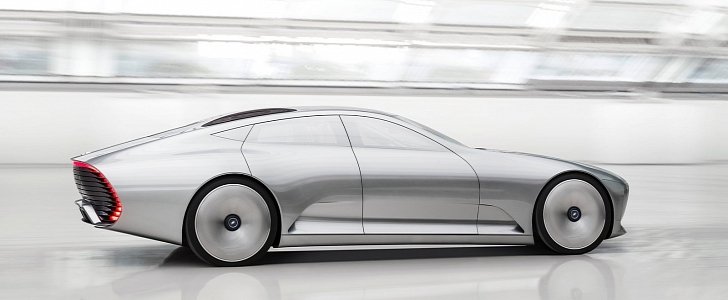We're not that far away from the moment an IT specialist will be at least just as important as a mechanic for maintaining our cars. In fact, assuming electric vehicles become the norm, given their well-known reliability, the software engineer could actually become a much closer acquaintance than the guy with the spanner and the greasy hands.
The computing power that will go into future cars would make your desktop PC blush, and somebody has to provide all those silicon chips. You might have already heard of NVIDIA, but that's mainly because you like to play a video game or two on your PC, so you had to keep up to date with the latest graphic cards. In recent years, though, NVIDIA has expanded from manufacturing GPUs (graphical processing units) to making general-purpose chips like the Tegra mobile processor.
Naturally, NVIDIA is also present in the automotive industry, providing the brains for the vehicles of many well-known brands, but with the advent of the self-driving technology, the ability to process ones and zeros as quickly as possible has suddenly become paramount. That means that the companies providing this type of solutions are now engaged in a war to secure the best contracts available.
NVIDIA's most notable rival is called NXP, and it has just announced a new product. Called the BlueBox, it is basically a one-in-all computing station destined for smart-cars that includes everything the company was offering individually until now. It's got processors for radar, vision, and LIDAR, which is another way of saying “everything an autonomous car would need.”
Last year, Holland-based NXP acquired the US Freescale for a total of $12 billion, giving birth to the world's largest supplier of automotive semiconductors. That's a self-declared title, and one that NVIDIA will obviously be contesting. Bob Conrad, the man who leads NXP's microcontroller business, explains why his company is actually in the lead. Speaking to IEEE Spectrum, he said, “They have no intermediate processors, and that’s not the way people do it today, not how they bundle options on cars. It’s a Big Bang approach; I’m not saying it will never happen, but it’s not what’s happening now.”
We're just going to nod at that, as if we understood everything he said, even though we couldn't explain what all that meant if our lives depended on it. Luckily, he goes on, so we can start to fathom what he's on about: “About 80 percent of the silicon content is in Level 3. Levels 4 and 5 are only the last 20 percent of silicon content.”
He's talking about the levels of autonomous cars, where Level 3 is what we're starting to get now (when the drivers have to keep their hands on the wheels at all times), Level 4 allows you to sit back and do whatever you want, while Level 5 cars don't even have a steering wheel. Bob's point is that his company is in a better position because the parts it supplies don't depend on whether or when cars will make it to levels 4 and 5.
Whatever the case, we surely haven't seen the last of this rivalry. With cars quickly becoming more about IT than chassis and performances, these suppliers have everything to fight for. So this isn't the last time we hear of NXP.
Naturally, NVIDIA is also present in the automotive industry, providing the brains for the vehicles of many well-known brands, but with the advent of the self-driving technology, the ability to process ones and zeros as quickly as possible has suddenly become paramount. That means that the companies providing this type of solutions are now engaged in a war to secure the best contracts available.
NVIDIA's most notable rival is called NXP, and it has just announced a new product. Called the BlueBox, it is basically a one-in-all computing station destined for smart-cars that includes everything the company was offering individually until now. It's got processors for radar, vision, and LIDAR, which is another way of saying “everything an autonomous car would need.”
Last year, Holland-based NXP acquired the US Freescale for a total of $12 billion, giving birth to the world's largest supplier of automotive semiconductors. That's a self-declared title, and one that NVIDIA will obviously be contesting. Bob Conrad, the man who leads NXP's microcontroller business, explains why his company is actually in the lead. Speaking to IEEE Spectrum, he said, “They have no intermediate processors, and that’s not the way people do it today, not how they bundle options on cars. It’s a Big Bang approach; I’m not saying it will never happen, but it’s not what’s happening now.”
We're just going to nod at that, as if we understood everything he said, even though we couldn't explain what all that meant if our lives depended on it. Luckily, he goes on, so we can start to fathom what he's on about: “About 80 percent of the silicon content is in Level 3. Levels 4 and 5 are only the last 20 percent of silicon content.”
He's talking about the levels of autonomous cars, where Level 3 is what we're starting to get now (when the drivers have to keep their hands on the wheels at all times), Level 4 allows you to sit back and do whatever you want, while Level 5 cars don't even have a steering wheel. Bob's point is that his company is in a better position because the parts it supplies don't depend on whether or when cars will make it to levels 4 and 5.
Whatever the case, we surely haven't seen the last of this rivalry. With cars quickly becoming more about IT than chassis and performances, these suppliers have everything to fight for. So this isn't the last time we hear of NXP.

